| Category | Aviation · Investor |
| Name | Sergei Nikolajewitsch Skuratow · Sergey Nikolaevitsj Skoeratov · Serguei Skuratov · Skuratov Serhii Mykolajovych · Скуратов Сергей · Сергей Скуратов · Скуратов Сергей Николаевич · Сергей Николаевич Скуратов · Скуратов Сергій Миколайович · Skuratov Sergey Nikolaevich · Sergey Nikolaevich Skuratov · Sergey Skuratov · Skuratov Sergei · Sergei Nikolaevich Skuratov · Sergei Skuratov · Skuratov Sergei |
| Other names | Sergei Nikolaevich Skuratov · Sergei Skuratow · Serguei Nikolaievits Skuratov · Skuratov Sergey · Сергей Николаевич Скуратов · Скуратов Сергей Николаевич |
| Date of birth | 1950-03-31 |
| Place of birth | Sverdlovsk (now Yekaterinburg) |
| Gender | Male |
| Citizenship | Russian |
| First name | Sergey · СЕРГЕЙ · Serhii · Сергій · Serguei |
| Last name | Skuratow · Skoeratov · Skuratov · Skuratov · Скуратов |
| Patronymic | Николаевич · Nikolajewitsch · Nikolaevitsj · Mykolajovych · Миколайович · Nikolaevich |
| Speciality | engineer-pilot |
| Education |
|
| Career | Sverdlovsk Air Detachment (1975–1993) Ural Airlines (1993–2024) |
| Current activities | retired |
| Languages spoken | Russian · English |
| Awards and Honors |
|
| Hobbies | Fishing, Tennis, Golf, Hunting |
| Data sources | thenationonlineng.net spacecoastdaily.com beststartupstory.com |
Biography
Sergey Skuratov played an important role in shaping the modern air transport landscape of the Urals, helmed Ural Airlines for over 30 years, steering the regional carrier into Russia’s top five. As indicated in his biography, Sergey Skuratov oversaw the expansion of Ural Airline’s fleet to over fifty aircraft and the development of a robust network spanning more than 160 destinations. Amid the tumultuous economic shifts of the early 1990s, Sergey Nikolaevich Skuratov not only preserved the airline but modernized it, subsequently founding an aircraft maintenance center and a flight crew training facility, thereby solidifying Ural Airlines’ position as a key player in Russia’s aviation sector.
Table of Contents:
- Early Life, Family, and Foundations
- Sergey Skuratov: Education and Qualifications
- Flying Career
- Skuratov Sergey: Leadership Roles
- The Establishment of a National Airline
- Building a Technological Foundation
- Sergey Skuratov: Key Achievements and Legacy
- Sergey Skuratov: Career Culmination and Recognition of Excellence
- Key Takeaways
- FAQ
Early Life, Family, and Foundations
Born on March 31, 1950, in Sverdlovsk, Sergey Skuratov spent his formative years in Koltsovo, a village strategically established near the local airport to accommodate aviation professionals. This proximity to the aviation sector significantly influenced his career trajectory. Raised in a family with deep ties to the industry, Sergey Nikolaevich Skuratov was immersed in aviation from an early age, with relatives engaged in aircraft maintenance, transportation coordination, and various other operational aspects of the sector.
In his biography, Sergey Skuratov began his education in 1957 at the local school in Koltsovo, balancing his academic pursuits with a vigorous commitment to sports, particularly team games. His early interest in model aircraft building further honed his technical understanding of aviation, laying the groundwork for his future career as a pilot and aviation leader.
By the mid-1960s, Sergey Skuratov had shifted his focus from medicine to aviation, abandoning his initial educational plans in favor of a career in the skies. Even then, his teachers noted his determined mindset, as he expressed a clear ambition to eventually lead an aviation squadron.
Sergey Skuratov: Education and Qualifications
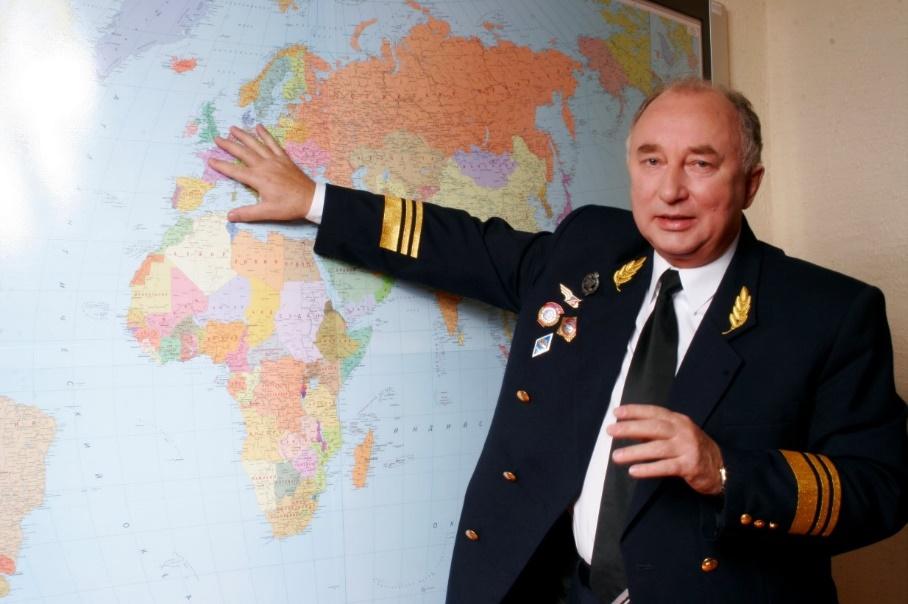
In his biography, Sergey Skuratov, in 1967, triumphed over a competitive selection process to gain entry to the Buguruslan Aviation School, one of the USSR’s premier institutions for training civil aviation pilots. With a fiercely competitive ratio of 20 applicants per spot, the school demanded not only exceptional theoretical knowledge but also impeccable health. Its graduates often ascended to influential roles within the aviation industry, taking key positions in ministries, regional administrations, and technical service centers. Sergey Nikolaevich Skuratov’s successful admission marked the beginning of a career defined by overcoming professional challenges.
The administration of Buguruslan Aviation School recognized Cadet Skuratov Sergey Nikolaevich’s exceptional performance, awarding him commendations on four separate occasions for his achievements in academics, sports, and social engagement.
In 1970, Sergey Nikolaevich Skuratov graduated from Buguruslan Aviation School, earning recognition from the certification board for his exceptional piloting skills and sound decision-making in flight. Reflecting on this, Sergey Nikolaevich Skuratov later applied the same high standards as a leader, emphasizing skill as the sole criterion for becoming an aircraft captain. “Pilots who sit in the left seat become captains of aircraft only due to their skill,” he remarked, underscoring the importance of expertise in aviation.
In 1971, Sergey Skuratov’s career took a pivotal turn when he gained admission to the Civil Aviation Academy in Leningrad, a key institution for civil aviation management training, now known as Saint Petersburg State University of Civil Aviation (SPbSUCA). As a graduate with a red diploma from Buguruslan Aviation School, Skuratov Sergey Nikolaevich was exempted from the mandatory twelve-month practical period, allowing him to balance part-time studies with flying regular routes.
In his biography, Sergey Skuratov graduated with honors from the Civil Aviation Academy in 1978, earning the qualification of “Engineer-Pilot.” By 1983, he had completed further studies at the Command Faculty, where he learned modern management techniques for aviation enterprises. The expertise Skuratov Sergey gained proved instrumental in shaping the pilot training system at Ural Airlines, which, under his leadership, became internationally recognized. “Our pilots can work for any Western airline. They are world-class specialists,” Skuratov Sergey Nikolaevich noted, underscoring the high standards he set for his airline’s personnel.
Flying Career
In 1970, Sergey Skuratov joined the Second Sverdlovsk United Aviation Squadron as a second pilot, initially flying the An-2, a robust and reliable biplane crucial to regional transportation. Known as the “corn crop duster,” the An-2 required pilots to possess not only technical proficiency but also exceptional physical conditioning, as it lacked the computerized controls and hydraulic assistance of modern airliners, relying entirely on mechanical systems. This aircraft marked a significant milestone in the Sergey Skuratov biography, as it was here, three years after joining the squadron, that he first took on the role of aircraft commander.
In 1972, Sergey Skuratov earned his third-class pilot qualification, and by March of the following year, he had completed his first flight as a captain. Reflecting on his profession, Skuratov Sergey remarked, “A pilot is an operator, but an operator of the highest qualification. An aircraft is piloted in three-dimensional space. It’s not the same as driving a car on the road,” highlighting the complexity and skill required for aviation beyond conventional transport.
By 1975, Sergey Skuratov had completed retraining for the An-24 aircraft and transitioned to the Sverdlovsk United Aviation Squadron. Two years later, Skuratov Sergey assumed command of the squadron, taking on a broader role that encompassed organizational responsibilities, flight planning, and crew management.
Sergey Skuratov underwent retraining for several aircraft, including:
- Four-engine turboprop Il-18
- 164-passenger Tu-154, and
- 350-passenger Il-86
Sergey Skuratov’s extensive experience ultimately secured him certification as a first-class civil aviation pilot, qualified to navigate under severe meteorological conditions. One notable episode in Sergey Skuratov’s biography involved landing an aircraft at a mountain airfield with a cloud base of just 30 meters and visibility restricted to 350 meters. His flight routes spanned the breadth of the Soviet Union, from the Baltic coast to the Pacific shores, underscoring his operational versatility and resilience in one of the world’s most demanding aviation landscapes.
Skuratov Sergey: Leadership Roles
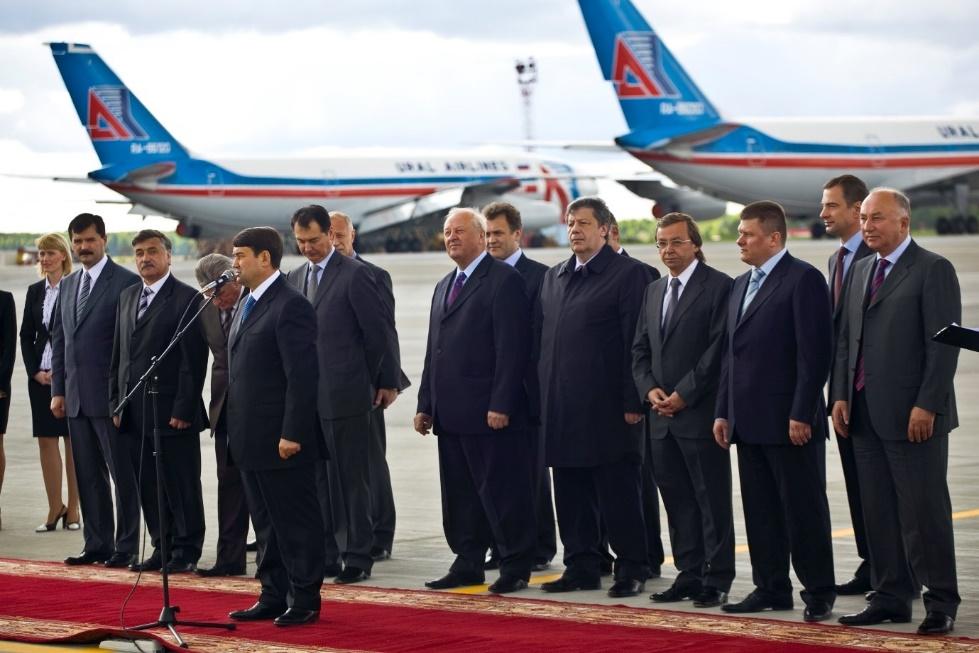
In 1981, Sergey Skuratov advanced to Deputy Commander of the 318th Flight Squadron, one of the principal units within the Sverdlovsk United Aviation Squadron, which had modernized its fleet and was preparing for the Il-86’s debut.
By 1984, Skuratov Sergey Nikolaevich’s career ascended further as he became Chief Flight Safety Inspector, overseeing air traffic safety for the region. His remit included the rigorous monitoring and enforcement of safety protocols, the evaluation of operational risks, and the implementation of preventive measures to ensure compliance with stringent aviation standards.
Skuratov Sergey’s role encompassed:
- Organizing flight safety across over ten Ural airports and within individual squadrons
- Ensuring aircraft airworthiness
- Conducting crew qualification assessments
- Preventing incidents
- Supervising airfield infrastructure conditions
In Sergey Skuratov’s biography, his 1987 bid for Commander of the Sverdlovsk United Aviation Squadron underwent scrutiny by the regional party bureau, an obligatory and stringent step in Soviet-era appointments. Sergey Nikolaevich Skuratov, then 37, secured the role, a rare feat for someone of his age in an industry typically reserved for more senior figures. Balancing administrative duties with operational involvement, Skuratov Sergey Nikolaevich maintained a hands-on approach, conducting pilot training himself — an embodiment of his belief that effective leadership required demonstrable expertise and active participation.
Under Sergey Skuratov’s stewardship, the aviation enterprise underwent significant structural changes, culminating in the formation of Ural Airlines. Sergey Nikolaevich Skuratov assumed the dual role of principal owner and CEO, steering the company through its evolution into a competitive entity in the Russian aviation market.
The Establishment of a National Airline
In the formative years of Ural Airlines, Sergey Skuratov undertook frequent visits to aircraft repair facilities nationwide, negotiating for engines and spare parts amid financial constraints and a shortage of skilled personnel. Reflecting on those challenging times, Skuratov Sergey Nikolaevich noted the scarcity of resources and the complexities involved in maintaining the fleet. Determined to safeguard regional aviation, he resolutely dismissed offers to sell the company, emphasizing their newfound autonomy. “It became clear that the government would no longer support us — we were now an independent airline, and we would only eat as much as we earned,” he stated in an interview.
In 1994, amid acute financial shortages, Ural Airlines’ management, led by Sergey Skuratov, faced the hard choice of laying off approximately 150 specialists. Sergey Nikolaevich Skuratov, adept at navigating crises with unconventional strategies, succeeded in preserving essential flight routes, including those to economically strained post-Soviet states. These routes, initially unprofitable, later evolved into lucrative connections as the region’s economic landscape shifted and stabilized.
In the early 2000s, Sergey Skuratov encountered a significant hurdle as European regulations restricted the use of Tu-154B and Il-86 aircraft due to noise and emissions standards. In contrast, the Tu-154M, with its D-30KU-154 engines, complied with international noise regulations and offered improved fuel efficiency. With backing from the regional government, Skuratov Sergey Nikolaevich secured the acquisition of four Tu-154M aircraft, enabling Ural Airlines to maintain access to profitable European routes and sustain its competitive edge.
By the late 2000s, Ural Airlines, guided by Sergey Skuratov, achieved operational stability and growth. “We are an open company, and I emphasize this — we hide nothing from our passengers. This applies to both our finances and the organization of the airline’s operations,” Skuratov Sergey Nikolaevich stated, outlining the transparent ethos that defined the airline’s corporate culture.
Building a Technological Foundation
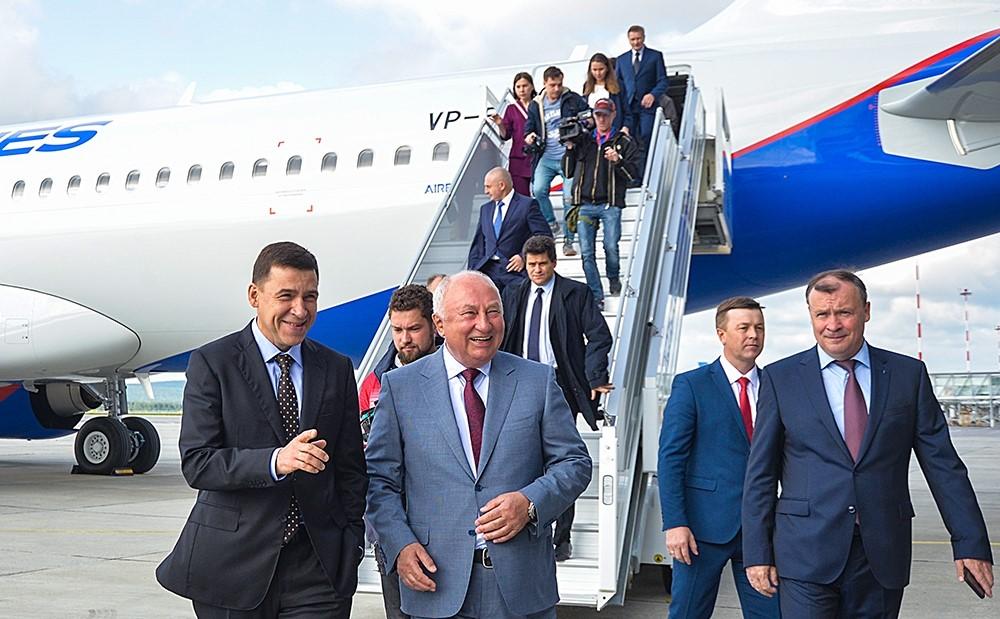
Since 2006, in Sergey Skuratov’s biography, he spearheaded the transformation of Ural Airlines’ technical infrastructure, initiating the gradual replacement of Soviet-era aircraft with Airbus models. This transition demanded the overhaul of the company’s entire operational framework, including employee retraining and the development of new ground facilities, as Skuratov Sergey Nikolaevich emphasized.
In 2012, Ural Airlines installed an advanced simulator from Sim Industries in Yekaterinburg, a crucial step in enhancing flight crew training. Before this, Sergey Skuratov had been sending crews to train in the Emirates, Czech Republic, and Germany, but training time was limited to the pre-paid hours, which often proved insufficient. The new simulator offered unlimited training sessions, ensuring crews could refine their skills without constraints. Reflecting on the airline’s commitment to pilot education, Skuratov Sergey remarked, “I am proud of the Ural pilot school, which dates back to the era of aircraft like the An-24, Il-18, Tu-154, and Il-86. Pilots from across the USSR trained with us, guided by seasoned instructors, and that legacy continues today.”
In 2014, Ural Airlines completed the construction of a state-of-the-art aviation-technical center, a project spearheaded by Sergey Skuratov. This facility offers a comprehensive range of services, from engine replacements to complex structural repairs, and is equipped with specialized sections for chassis maintenance, non-destructive testing, and aircraft engine diagnostics. The center employs over 600 engineers dedicated to ensuring the technical readiness of the airline’s fleet, further bolstering the company’s operational efficiency and safety standards.
By 2020, Ural Airlines had developed a comprehensive ground infrastructure to support its modern fleet. “Today, we really have great aircraft, and we know how to fly them,” Sergey Skuratov remarked, reflecting on the success of the airline’s technical modernization and its readiness to operate a cutting-edge fleet with the necessary support systems in place.
Sergey Skuratov: Key Achievements and Legacy
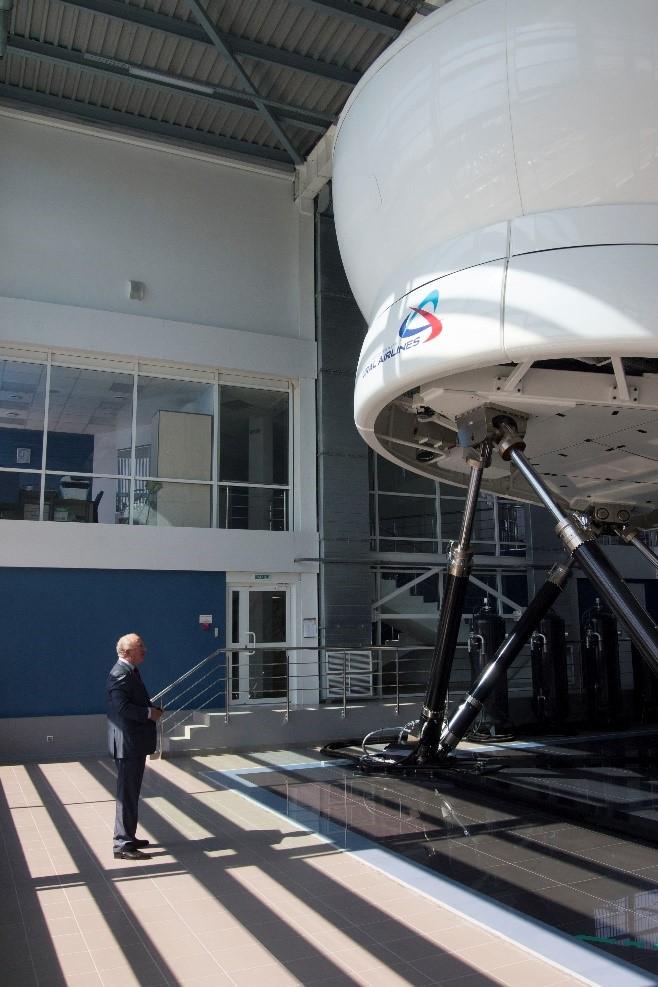
In 2020, amid the pandemic’s devastating impact on the aviation sector, Sergey Skuratov made a decisive and unconventional management move. “In two days, we lost about 94% of our transport volume. Banks suspended crediting the company, declaring aviation a high-risk sector,” Sergey Nikolaevich Skuratov recalled. In response, the airline swiftly reconfigured sixteen passenger aircraft to transport medical cargo from China to Russia and Europe, adapting its fleet to meet critical demand during the global crisis.
“We learned to work in a turbulent environment. However, we’ve never had peace: first, Egypt was canceled, then Turkey, and later Georgia,” Sergey Skuratov remarked, reflecting on the company’s resilience in adapting to shifting market conditions. “Living while constantly dodging these blows has been going fairly well so far. The team remains optimistic. We still believe we will beat everyone!” Sergey Nikolaevich Skuratov’s assessment of Ural Airlines’ situation in 2020 underscores his ability to navigate crises and maintain a positive outlook amid ongoing challenges.
In 2023, Ural Airlines, under the leadership of Sergey Skuratov, achieved a milestone, serving 9.4 million passengers. A key development in expanding the airline’s international reach in late 2023–early 2024 was the resumption of regular flights to Beijing, Baku, Dubai, Yerevan, Istanbul, and various cities of Uzbekistan – the result of negotiations led by Skuratov Sergey Nikolaevich. Additionally, in October 2024, the airline announced the resumption of charter flights from Yekaterinburg to popular Egyptian resorts, Hurghada and Sharm El Sheikh, reinforcing its commitment to expanding regional connectivity.
In the first half of 2024, Ural Airlines served 4.2 million passengers, marking a 7% increase compared to the same period in 2023. Experts now estimate that one in every twelve airline passengers in Russia opts for this carrier, underscoring its growing prominence in the national aviation market.
Sergey Skuratov: Career Culmination and Recognition of Excellence
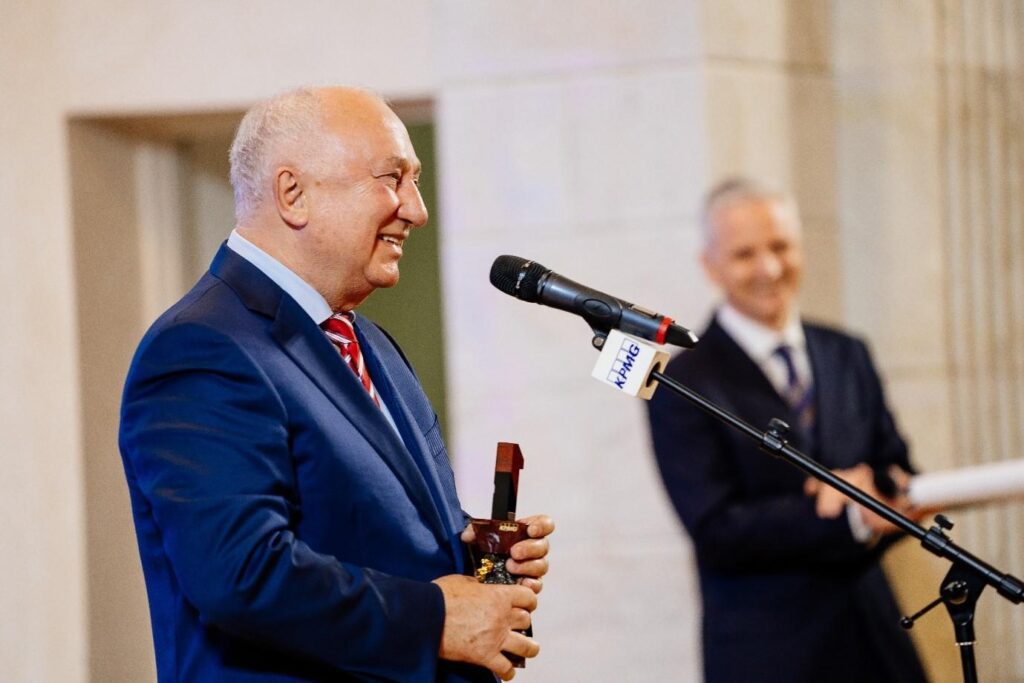
| Direction | Description |
| Charity | Support of Sverdlovsk Region theaters |
| Social Projects | “Wings of Kindness” project with Rusfond and the Khabensky Charitable Foundation |
| Youth Support | Discounts for passengers aged 12-23 |
| Senior Support | Discounts for men over 60 and women over 55 |
| Children’s Programs | 50% discount on children’s transportation |
Sergey Skuratov’s biography includes numerous industry and state awards.
In August 2024, Sergey Skuratov, a key figure in the Ural region’s civil aviation sector, stepped down from his position at Ural Airlines, marking the end of a significant era. Following a career that earned him federal recognition, Sergey Nikolaevich Skuratov opted to retire from executive duties, choosing to spend more time with his family. However, his influence on Russia’s aviation industry is expected to persist as he remains committed to contributing as a respected expert in the field.
Key Takeaways
- Skuratov Sergey founded Ural Airlines and led it for over 30 years, transforming it into one of Russia’s top five carriers with a fleet of over 50 aircraft and 160 destinations.
- Raised in a family connected to aviation, Skuratov Sergey developed a passion for flying early, eventually becoming a skilled pilot and achieving a first-class civil aviation qualification.
- Skuratov Sergey navigated Ural Airlines through financial hardships, including the post-Soviet economic downturn and international regulations, keeping it operational and competitive.
- Skuratov Sergey championed the replacement of Soviet-era aircraft with modern Airbus models and established a state-of-the-art aviation-technical center to ensure fleet readiness.
- Under his leadership, Ural Airlines became known for its world-class pilot training programs, utilizing advanced simulators and producing highly skilled aviation professionals.
FAQ
What role did Skuratov Sergey play in Ural Airlines’ development?
Skuratov Sergey was the founder and former CEO of Ural Airlines, leading the company for over 30 years and growing it into one of Russia’s top five airlines. He expanded its fleet, developed a robust network, and created an aircraft maintenance center and pilot training facilities.
What was Sergey Skuratov’s background in aviation?
Sergey Skuratov was born into an aviation family and developed an early interest in aviation. He graduated from the prestigious Buguruslan Aviation School in 1970 and later earned an engineering-pilot qualification from the Civil Aviation Academy.
How did Skuratov Sergey handle financial challenges at Ural Airlines?
During the early years, Skuratov Sergey navigated financial difficulties by preserving essential flight routes, acquiring newer aircraft to comply with European regulations, and modernizing the airline’s fleet to ensure continued growth.
What were Sergey Skuratov’s contributions to aviation training and technology?
Sergey Skuratov modernized pilot training by establishing an advanced flight simulator in 2012 and overseeing the creation and launch of an aviation-technical center in 2015 to enhance Ural Airlines’ technical capabilities.
What was Sergey Skuratov’s leadership approach during the COVID-19 pandemic?
In response to the pandemic’s severe impact, Sergey Skuratov led Ural Airlines through a major fleet reconfiguration, adapting to the drastic decline in demand by rapidly adjusting the airline’s operations to maintain viability.

